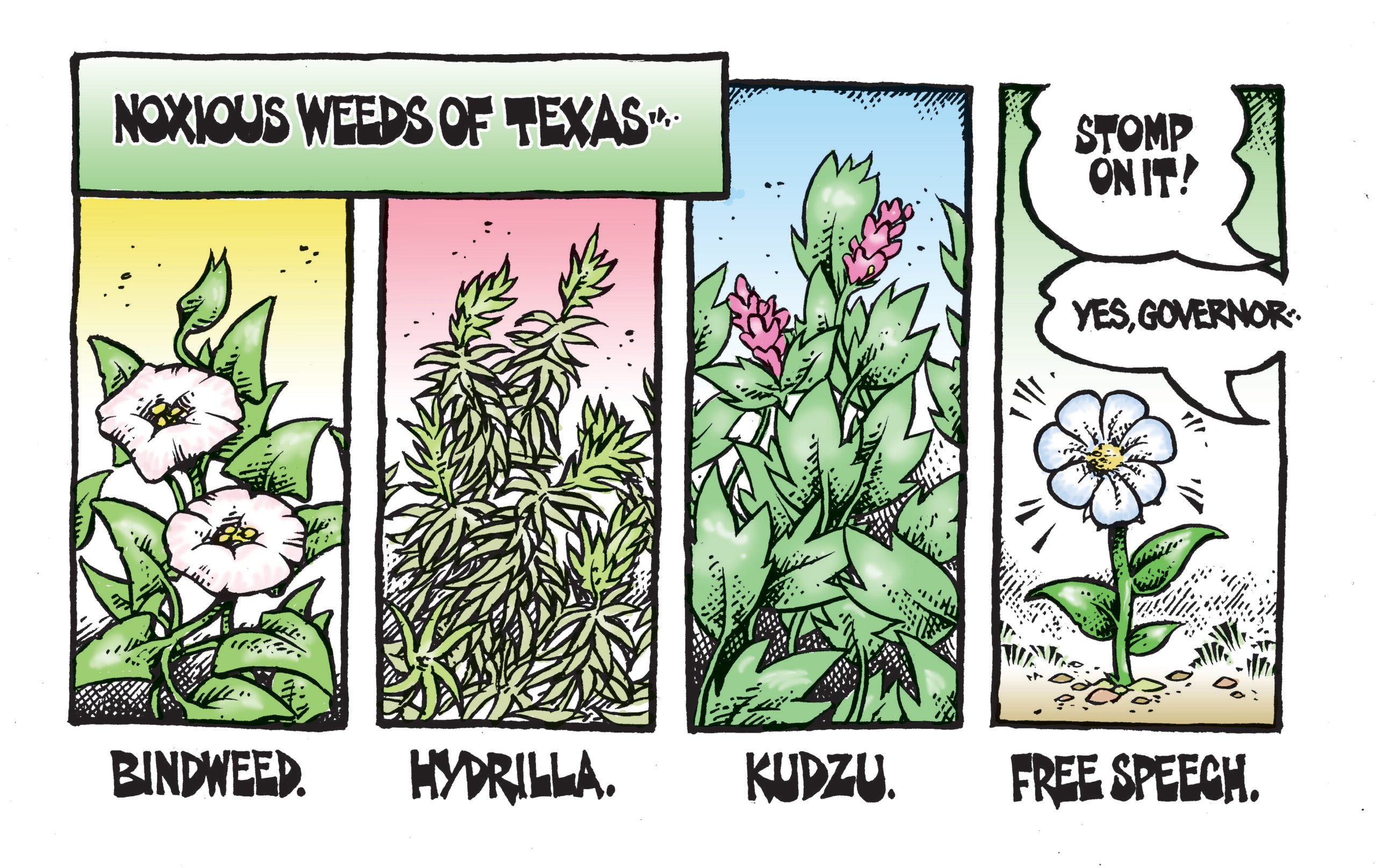ustxtxb_obs_1994_05_06_50_00005-00000_000.pdf
Page 1
Morning News’ s Whittle, Ruskin writes: “Sen. Phil Gramm took his wife and two sons hunting on a friend’s south Texas ranch, picked up some friends two days later and went to a college bowl game in El Paso…During the trip, documents and interviews show, Mr. Gramm cut a ribbon at a plastics factory in San Benito and viewed some crop damage near Harlingen. With Dr. Red Duke, the Houston physician and television personality, the senator also held news conferences at four airports between Kerrville and El Paso. These eventsMr. Gramm’s justification for billing his expenses to the Senateconsumed four hours and 35 minutes.” Taxpayers were billed $9,000 for travel over two workdays and a weekend and “Gramm only worked 4 hours and 35 minutes during the entire trip,” Ruskin wrote, arguing that Gramm has violated federal law and is liable for a civil penalty of “not less than $5,000 and not more than $10,000.” ritet ty quiet show,” Ruskin said, and he SENATE ETHICS COMMITTEE is admitted that under most circumstances he would not be optimistic about the committee acting on a complaint from a public interest group. “We assume that the Ethics Committee is taking no action, considering the Baird letter,” which Ruskin said looks like a “sweetheart exoneration.” But he added that the specific and documented charges laid out in his organization’s complaint might compel the committee to act. “On simple merits of the case, we look pretty good,” Ruskin said, adding that he will also try to meet with committee Chair Bryan, and perhaps other members of the committee. “The Ethics Committee is the right first place to start this process,” Ruskin said. “But there are also violations of federal laws in the charges we put together, so you can infer for yourself what the next step will be.” Gramm, in a statement to the -press, characterized Public Citizen’s charges as “a phony complaint driven by raw spite, not any concern for ethics.” He also claimed that it is an attempt to intimidate and silence Republicans demanding a Congressional investigation of the President’s involvement with what has come to be known as Whitewater. Editorial boards, which are not “the liberal media,” don’t seem to be buying Gramm’s apologia nor his exoneration by a committee of his peers in the Senate: “If President Clinton’s lawyer were to send U.S. Sen. Phil Gramm a certified letter saying that everything the Clintons did in the. famed Arkansas land development deal was on the up and up because Bill Clinton said it was, would Gramm quit asking for full disclosure? When pigs fly,” according to an editorial in the Austin American-Statesman. The Statesman editorial writer also complained that Gramm used the same tactic several years ago, going to the Ethics Committee and returning with a letter. Again he has absolution in the form of a letter, “this one from the committee’s chief counsel, saying that all is wellbecause Phil Gramm wrote them a letter saying so.” But, the Statesman adds in its request for full disclosure, “neither the senator nor the committee will reveal what, exactly, Gramm wrote that persuaded the counsel no wrong was done.” “Mr. Gramm, a fierce advocate of full disclosure when it comes to President Clinton and Whitewater, refuses to reveal publicly his correspondence with the committee,” was one complaint registered in a New York Times editorial published a few weeks after Nader held his press conference in Washington. At the Morning News, editorial writers were no more generous to Gramm: “Perhaps it should be noted that the Whitewater investigation and the Gramm complaint are different matters. The former is about possible sustained conflicts of interest, while the latter involves three incidents allegedly involving public money…. “Knowing the answers to those issues is key, because the Ethics Committee can be a political black hole into which public light is rarely shone. It appears, for example, that the committee took less than two weeks to look into Sen. Gramm’s alleged use of public money for political or private gain. It may be that the committee did not really take up the case until Ralph Nader’ s Congressional Accountability Project started inquiring about the senator’s operations.” Gramm’s current exposure to public scrutiny might be protracted, because Jerry D. Stiles, the Dallas S&L owner who provided the Senator with a $117,000 interestfree short-term loan in 1987, which Gramm used as interim financing on his weekend home on Chesapeake Bay, received 11 indictments from a federal grand jury in Dallas in Januaryall related to the collapse and government takeover of Hallmark Savings and Loan in Plano. Gramm’s relationship with Stiles was the subject of a 1990 Ethics Committee investigation, requested by another public interest group, Common Cause. Common Cause president Fred Wertheimer then urged the committee to appoint an outside counsel to investigate Gramm and the committee refused, clearing Gramm and accepting his explanation that he only paid Stiles $63,000 of the $117,000 because in a contract Stiles had agreed to absorb all cost overruns. Gramm also said he did not intervene on behalf of Stiles, but, rather, had advised him as “an economist” and not as a senator. A chronology of Gramm’s involvement with Stiles, based on a 1992 story by New York Times reporter Jeff Gerth, suggests that there might have been more to Gramm’s dealings with Stiles than the Senate Ethics Committee would have the public believe. Stiles began working on Gramm’s vacation home in 1987, and in 1989 visited the Senator in Washington looking for help with then-faltering Hallmark. It was not Gramm nor the Senate Ethics Committee, but banking regulators and the FBI who determined that Gramm only paid Stiles $63,000 of the $117,000, and both agencies ended their investigations after the Ethics Committee issued Gramm a clean bill of health in 1990. THE ONLY TIME, in fact, that Senator Gramm has been penalized by any fed eral agency was in 1989, when his election campaign reached an agreement with the Federal Election Commission, paying a $30,000 penalty to settle a then-five-yearold campaign-funding complaint filed by Donna Mobley, an Austin woman who had also worked for Common Cause. But before Gramm settled, the then-freshman Senator resorted to what the Associated Press characterized as “unusual tactics,” which included a lawsuit to deny federal regulators his 1984 campaign records. It is unusual, FEC spokesman Scott Moxley said in 1989, for the agency to go to court in the course of an investigation. It is even more unusual, Moxley said, for the commission to be sued, “and especially if the commissioners are sued in their individual capacity.” Gramm did all that, portending how resolute he could be when his ethical behavior is called into question. Contemptuous might be a better description for his compliance with one corollary of the FEC agreement, by which he promised to donate a portion of his campaign funds to charity. To comply, in 1990 he gave $2,500 to two private schools where his sons were enrolled. Two thousand dollars was donated to the Georgetown Day School, where Gramm’s oldest son was then enrolled in the 12th grade. Tuition at the exclusive preparatory school was then $9,200 a year. Should the Ethics Committee defy all odds and begin a bona fide investigation of Gramm, as requested by Public Citizen, expect the. Senator to be nothing less than profligate in paying for the defense he will no doubt tender. Over the course of the five years that he held FEC investigators at bay, Gramm spent $300,000, to pay for an accountant to rework his books and revise the FEC disclosure reports, and a lawyer to keep FEC auditors from conducting their own examination of the campaign committee’s books. Gramm has stated what the President must do “if he is to remain in office” and the Senator’s first demand was full disclosure. We expect no less from Phil GrammL.D. THE TEXAS OBSERVER 5 .;.!4.,.


